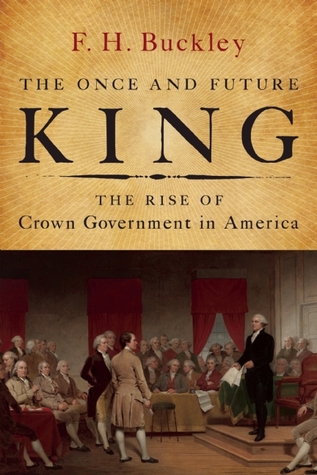In 1973 Arthur M. Schlesinger, Jr., published The Imperial Presidency. He argued that the stretching of presidential power by Democrats Roosevelt and Truman had been necessary and benevolent, but that such behavior by Nixon was a dark threat to the commonwealth. Schlesinger’s childishly partisan and superficial tirade was soon forgotten. Time has moved on, and serial murders of constitutional government by Bush minor and Obama have made Nixon’s offenses look like jaywalking.
F.H. Buckley, professor of law at George Mason University, is rightly alarmed by present trends and admirably free of party propaganda. He realizes that Democrats as well as Republicans have contributed to the imperial presidency and provides good recent examples of this. He is correct also that presidents cannot abuse power without being enabled by Congress and, sometimes, the Supreme Court. This point was made repeatedly by John C. Calhoun, but the author has only one slighting, irrelevant, and erroneous reference to Calhoun in his discussion.
The author is also correct that the Separation of Powers doctrine has been overemphasized, and that the Founding Fathers for the most part favored and expected legislative supremacy. But in elaborate surveys of American and British political thought about the Separation of Powers, he is blithely unaware that John Taylor of Caroline and John Randolph of Roanoke, who do not appear at all in his work, in very early days correctly predicted everything that has come to pass in regard to executive supremacy.
Buckley assumes that until recently the United States has been governed by the Constitution discussed in Philadelphia, which has now been supplanted by one of presidential supremacy. But the Constitution that governed from 1801 to 1861 was not the one discussed at Philadelphia or in The Federalist: It was the one ratified by the people of the states. Madison himself said that this ratification alone gave the Constitution its authority. The author has not a clue that a new constitution, unimaginable to the Framers, was invented by Lincoln. I would argue that still another constitution emerged from the Progressive Era of Wilson and Teddy Roosevelt. In that time the president became a celebrity, and the law was transformed into a tool of sociological manipulation. Since then, there have been no constitutional debates over principle, only consideration of how the document could be stretched to promote desired policy. And did not the New Deal and World War II change fundamentally how the federal government was viewed, and how the Constitution was interpreted and applied?
If so, our present troubles cannot be ameliorated by a redefinition of constitutional principles; they are the product of a defect that Taylor, Randolph, and Calhoun identified for us long ago. Dr. Buckley is perhaps right that parliamentary governments are freer and less corrupt than presidential governments, although that is debatable. The author’s reforms, alas, do not begin to address our troubles. To have any real reform toward a government of the people, we must deal with immigration, plutocracy, kritarchy, and our ruling class’s catastrophic delusions of global omnipotence.
Buckley mentions that immigration has changed the American body politic, that non-Westerners have brought the mental equipment of non-Western governments to America. He mentions the Third World leader-worship atmosphere of Obama’s crowds. But he does not seem to be very affected by this, nor does he offer any solution for it. No change is possible when one Rockefeller has a million times more power than the likes of Professor Buckley and me, and while the leaders of both parties are lickspittles to Wall Street. It is near useless to discuss constitutional principles when the gods and goddesses of the Supreme Court can trash them at will. How do you cure a president-worshiping people? Imperial regimes will have their emperors. So history suggests. It suggests also that emperors will often have serious intellectual and moral defects, something for which we have had irrefutable evidence for many years now.
[The Once and Future King: The Rise of Crown Government in America, by F.H. Buckley (New York and London: Encounter Books) 398 pp., $27.99]

Leave a Reply